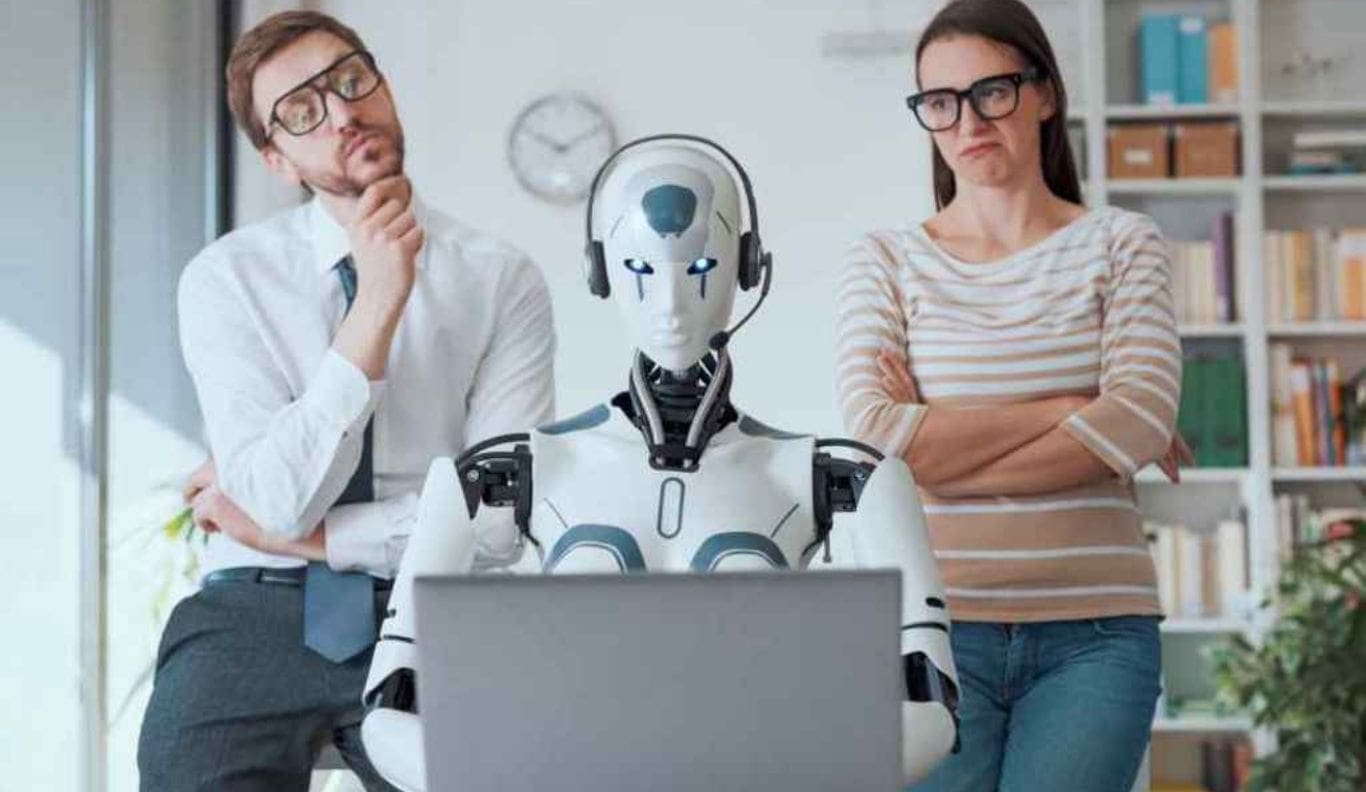The Accelerating Adoption of Artificial Intelligence and its Impact on Employment in the Tech Industry
In 2025, the landscape of employment within the technology sector in the United States is undergoing a remarkable transformation, driven primarily by the rapid adoption of artificial intelligence (AI). As companies leverage AI technologies to enhance efficiency, the ramifications for the workforce are striking. Recent data indicates that over 94,000 professionals have been displaced in just one year, highlighting a painful shift toward automation.
The Rise of AI in the Workplace
AI’s influence permeates various facets of the tech workspace, with significant implications for programming, data analysis, customer service, and creative endeavors. Automation tools such as ChatGPT, Gemini, and Copilot have revolutionized how tasks are approached, allowing machines to execute complex functions in mere minutes—functions that previously demanded extensive human manpower. This unprecedented efficiency has led businesses to reassess their staffing needs, often resulting in job reductions as AI systems replace traditional roles.
The strategic shift toward AI isn’t merely about improving performance; it reflects broader economic pressures. Organizations are increasingly viewing automation as a way to “reduce human resources and provide services faster and cheaper.” The ultimate goal remains clear: to bolster productivity, minimize operational costs, and maintain competitiveness in an ever-evolving technological landscape.
Concerns Over Job Loss and Inequality
While the potential for increased efficiency excites many executives and shareholders, mounting concerns voice the anxiety shared by workers and advocacy groups. Critics fear that the omnipresence of generative AI could exacerbate social inequality and contribute to the systemic unemployment of unskilled laborers. The ethical implications of this shift beg for a more profound conversation beyond mere profit considerations.
Economists have weighed in on this ongoing transformation. They express apprehension that as AI capabilities continue to advance, the threat to traditional employment roles across diverse industries will only grow. Although some posit that new job opportunities could arise for those willing to adapt to and harness these developing technologies, a profound adjustment period may be necessary.
The Call for Workforce Development
In light of the evolving employment landscape, global organizations like the United Nations and the World Bank are advocating for proactive measures from governments and corporations alike. Chief among these proposals is the emphasis on investing in workforce retraining and upskilling initiatives. As careers evolve, preparing workers to adapt to technological advancements becomes paramount; innovation should not sacrifice social stability.
This sentiment has gained traction as leaders ponder strategies that can bridge the gap between technological efficiency and the existing workforce’s realities. By focusing on retraining initiatives, both public and private sectors can aid in achieving a balanced progression towards an AI-driven economy.
The Intersection of Technology and Humanity
As the tech industry continues to embrace AI, it is crucial to recognize the intersection of technology and humanity. Employees increasingly need to cultivate both technical skills and soft skills, alongside a familiarity with AI technologies. This new paradigm requires not just a shift in how work is performed, but a reevaluation of education and training practices to prepare future generations for a landscape where AI plays a central role.
The ongoing dialogue around the ethical implications of AI—particularly its potential to widen socioeconomic divides—calls for immediate attention. It’s an urgent reminder that while AI heralds a new era of operational capability, the effects on the workforce must be carefully navigated to ensure inclusive opportunities for all.
Navigating a New Era
As we peer into this evolving future of work, it’s essential for stakeholders in both the public and private sectors to foster an environment that prioritizes adaptability, inclusivity, and innovation. The story of AI isn’t just about algorithms and automation; it’s also about the people behind the technology, those who may find their roles transformed or even rendered obsolete.
In navigating this new era, dialogue and collaboration among industry leaders, policymakers, and workers is vital. The future should be one where progress in technology complements human potential rather than undermines it, allowing society to reap the full benefits of artificial intelligence.


